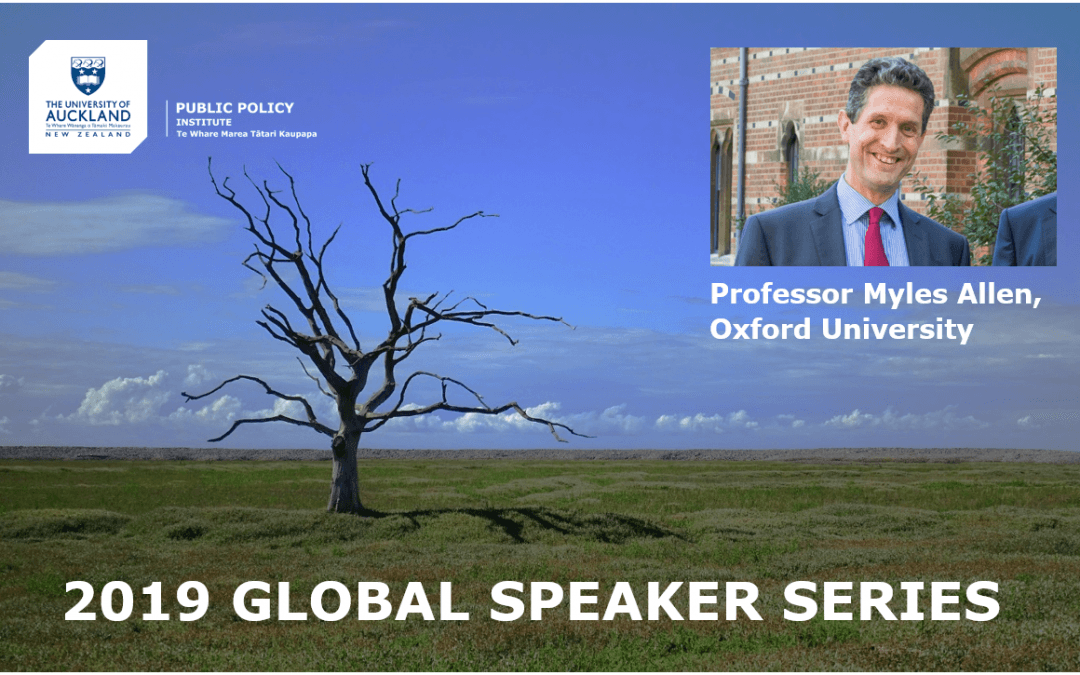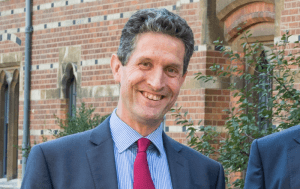New Zealand’s decisions in 2019 could help frame the global climate agenda for many decades to come, believes an eminent British climate change scientist.
As part of the Institute’s 2019 Global Issues Speaker Series, Professor Allen gave a free public lecture: ‘Leading the World to Net Zero: The opportunities and challenges of New Zealand’s Zero Carbon Act’ on Tuesday 19 March at the Fisher and Paykel Auditorium in the Sir Owen G. Glenn Building.
On 21 March he will be speaking in Whangārei at a sold out session as part of the Tai Tokerau Speaker Series at Whangārei Library.
Professor Allen arrived in the country a day after thousands of students in New Zealand and around the world walked out of classrooms to call for urgent action on climate change.
He believes New Zealand’s Zero Carbon Act could make it one of the first advanced economies in the world to commit itself to net zero emissions, and the first with such a large agricultural sector.
“Like any pioneer entering uncharted waters, there are challenges to be overcome as well as first-mover opportunities,” he says, “but the big picture could not be simpler. Carbon dioxide emissions accumulate in the climate system, like lead in the bloodstream. Stopping global warming requires net carbon dioxide emissions to be reduced to zero, permanently.”
A permanent net zero world cannot rely indefinitely on forestry to offset continued use of fossil fuels in sectors like aviation. –
He says decisions about other warming gases, like methane, could make a few tenths of a degree difference to the peak warming level reached, but they don’t change that all-important fact.
“And a permanent net zero world cannot rely indefinitely on forestry to offset continued use of fossil fuels in sectors like aviation.”
He believes a successful pathway to net zero needs clarity in the destination, and fairness and transparency in the transition.
“I will argue that the simplest way of designing fairness and transparency into the Zero Carbon Act is to focus on the long-term temperature goal set out in the Paris Climate Agreement.”
The Agreement’s central aim is to strengthen the global response to the threat of climate change by keeping a global temperature rise this century well below 2 degrees Celsius above pre-industrial levels, and to pursue efforts to limit the temperature increase even further to 1.5 degrees Celsius.
He says this means treating all sectors equally in terms of their impact on global temperature.
“Traditional farmers who are not contributing to ongoing global warming would not be penalised as if they are, while an agribusiness initiative that would cause a large increase in methane emissions, with a correspondingly disproportionate impact on global temperature, would be treated accordingly.”
And he says recipients of off-shore oil exploration permits, for example, would need to explain what will happen to the carbon dioxide that their oil will generate.
“Get this right, and New Zealand could show the way for many larger countries who have yet to think seriously about bringing extractive industries and agricultural emissions into climate policy. Treating all sectors fairly means all sectors pulling together.”
Myles Allen is Professor of Geosystem Science in the School of Geography and the Environment, University of Oxford, and Head of the Climate Dynamics Group in the University’s Department of Physics. He has has served on the United Nations Intergovernmental Panel on Climate Change (IPCC) and been a lead author and review editor on a number of assessments ranging from 2001 to 2013.


